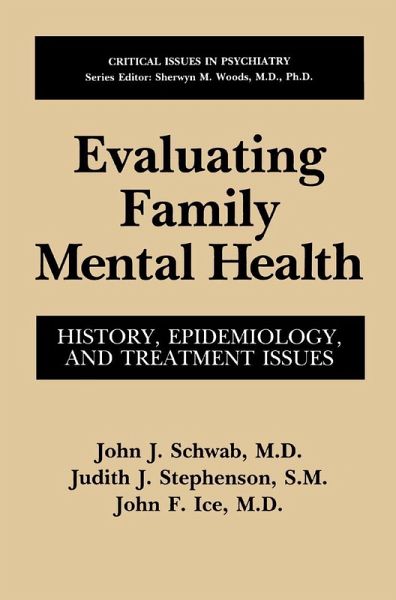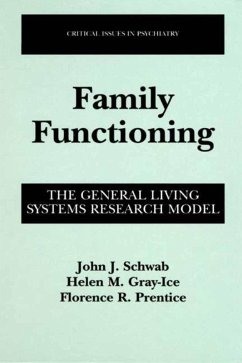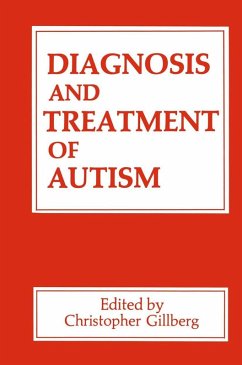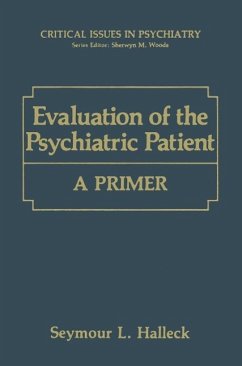
Evaluating Family Mental Health (eBook, PDF)
History, Epidemiology, and Treatment Issues
Versandkostenfrei!
Sofort per Download lieferbar
112,95 €
inkl. MwSt.
Weitere Ausgaben:

PAYBACK Punkte
56 °P sammeln!
At the time of this writing, there is much uncertainty about the form of this country's future healthcare system and the role of psychiatry and other mental health disciplines in that system. Current experience with various managed healthcare programs is not encouraging. Most often patients with severe psychiatrie disturbances receive, at best, so me form of crisis intervention or brief treatment. Marital and family approaches to treatment receive even less support. This discouraging socioeconomic context makes the work of John Schwab and his colleagues even more important than it would be in ...
At the time of this writing, there is much uncertainty about the form of this country's future healthcare system and the role of psychiatry and other mental health disciplines in that system. Current experience with various managed healthcare programs is not encouraging. Most often patients with severe psychiatrie disturbances receive, at best, so me form of crisis intervention or brief treatment. Marital and family approaches to treatment receive even less support. This discouraging socioeconomic context makes the work of John Schwab and his colleagues even more important than it would be in more favorable times. Their message is clear: The family is crucial to an understanding of psychiatrie disorders and must often be the major focus in the treatment of these disorders. This book is unique in its direct reflection of the senior author's long-term professional interests-the family, epidemiology, and history. A careful reading provides family therapists and researchers with won derful opportunities to examine the ways in which history, socio economie and politieal contexts, and epidemiology can be used to in crease understanding of the family. This his tory of the family is unusually thorough; in particular, I found fascinating the information about early Egyptian families (3000 B.C.) and their accordance of high status of women.
Dieser Download kann aus rechtlichen Gründen nur mit Rechnungsadresse in A, B, BG, CY, CZ, D, DK, EW, E, FIN, F, GR, HR, H, IRL, I, LT, L, LR, M, NL, PL, P, R, S, SLO, SK ausgeliefert werden.












